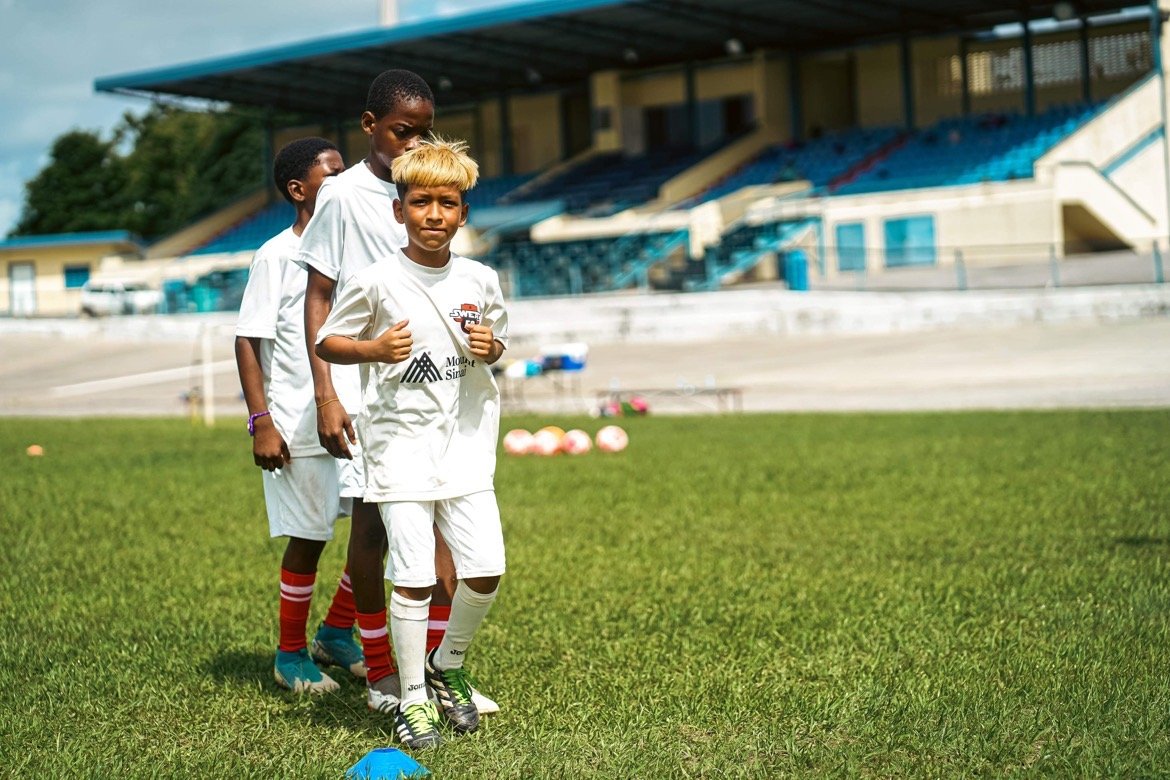2025 Summer soccer camps
Choosing the right soccer camp for you or your child is an important decision that depends on various factors such as skill level, goals, age, and personal preferences. Here’s a detailed guide on how to select the best soccer camp for your needs:
1. Assess Your Goals
Think about what you want to achieve from attending a soccer camp. There are different types of camps, each catering to different objectives. For example:
Skill Development: If your main goal is to improve individual skills (e.g., dribbling, passing, shooting), choose a camp that focuses on technical training and player development.
Competitive Play: If you want to challenge yourself against strong opponents and get exposure to high-level competition, select a camp that offers more competitive environments.
College Recruitment: For players hoping to play college soccer, look for camps that provide exposure to college coaches or emphasize recruiting.
Fun and Social Experience: If you’re a beginner or just want to have fun while learning the basics, consider recreational camps that focus on enjoyment and fitness.
2. Age and Skill Level
Not all camps cater to the same age groups or skill levels. Make sure to pick a camp that matches the player’s ability and maturity. Here's a general breakdown of how to match camps with age and skill:
Young Beginners (5-10 years old): Look for camps with a focus on basic skills, fun activities, and fostering a love for the game. Some camps may also have a more general athletic development approach.
Intermediate Players (11-14 years old): Players at this level should look for camps that emphasize refining technical skills, introducing tactical concepts, and building team dynamics.
Advanced Players (15-18 years old): Choose camps that offer high-level training, specialized coaching, and competition. These camps should focus on preparing players for college soccer or professional development.
Recreational Players: For those who play for fun or want to improve without intense competition, recreational soccer camps can provide a balanced approach with a mix of skills and enjoyment.
3. Location and Duration
Consider the location and duration of the camp based on your convenience and availability:
Local Camps: Ideal if you're looking for a more affordable and less time-consuming option. They are also good for younger players or beginners who are not yet ready for overnight camps.
Residential (Overnight) Camps: These camps are typically for more serious players. They often last several days or weeks and provide an immersive experience where players can focus intensely on their development.
Day Camps: These are suitable for younger players or those who may not want to be away from home. They typically run during the day and do not require overnight stays.
4. Coaching Quality
The coaching staff’s experience and credentials are crucial to the quality of the camp:
College or Professional Coaches: Look for camps that are led by certified coaches or involve college or professional players as instructors. These coaches bring valuable insight, tactical understanding, and training techniques that can elevate a player’s game.
Coaching Certifications: Check if the coaches are certified by reputable organizations like US Soccer, UEFA, or United Soccer Coaches. Certifications indicate a high standard of coaching knowledge.
Experience: Research the camp’s reputation and ask for testimonials or references if possible. Quality camps usually have established histories of successful player development.
5. Camp Structure and Focus
Different camps emphasize different aspects of player development. Be sure to choose one that aligns with your needs:
Technical Skills: Camps that focus on ball control, dribbling, passing, shooting, and first-touch mastery. These camps will usually have more individual training sessions.
Tactical Development: Some camps dive deeper into game strategy, positioning, team play, and decision-making. If you want to improve your understanding of the game and play smarter, this could be the right focus.
Fitness and Conditioning: Some camps emphasize athleticism and fitness. These camps may have a stronger focus on endurance, strength, speed, and agility.
Position-Specific Camps: Some camps specialize in specific positions, such as goalkeeper training or forward/striker camps. If you play a specialized position, this type of camp can offer focused, in-depth training.
6. Camp Size and Individual Attention
Small Camps: Smaller camps usually mean more one-on-one attention from coaches, which is ideal for players who want tailored feedback and individual development.
Larger Camps: While these camps offer a more social atmosphere and can be fun for making new friends, they may not provide as much individualized coaching. However, they can still be beneficial for gaining exposure to competition.
7. Cost and Value
While it’s tempting to opt for a low-cost camp, consider the value you are getting. Some camps might seem expensive but provide excellent coaching, facilities, and added benefits such as college exposure or professional gear. Here are a few things to consider:
Scholarships: Some camps offer financial assistance, especially for younger players.
Camp Extras: Check if the camp provides extras like meals, gear, or video analysis. These can add significant value to the overall experience.
Refund Policies: Ensure the camp offers a flexible or clear refund policy in case of cancellations or emergencies.
8. Fun and Social Aspects
Finally, consider the social experience. Soccer camps should be fun, especially for younger players. Look for camps that offer a well-balanced program that includes:
Games and Scrimmages: These give players a chance to test their skills in a competitive but fun environment.
Team-building activities: Off-field activities like team bonding, campfires, or recreational games can help players build friendships and teamwork skills.
Good Atmosphere: Ensure that the camp has a positive and encouraging environment, where players feel motivated to improve and enjoy their time.



